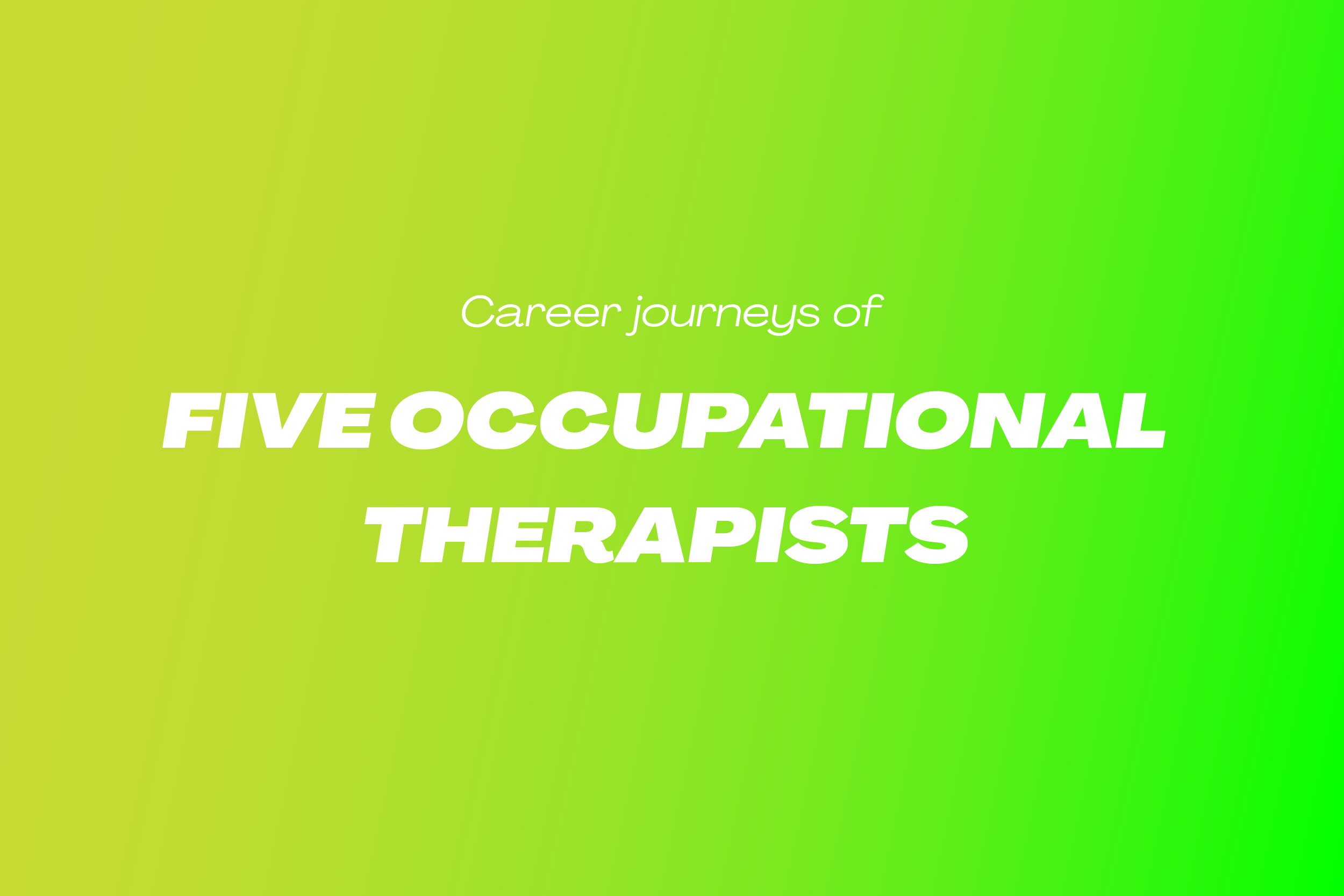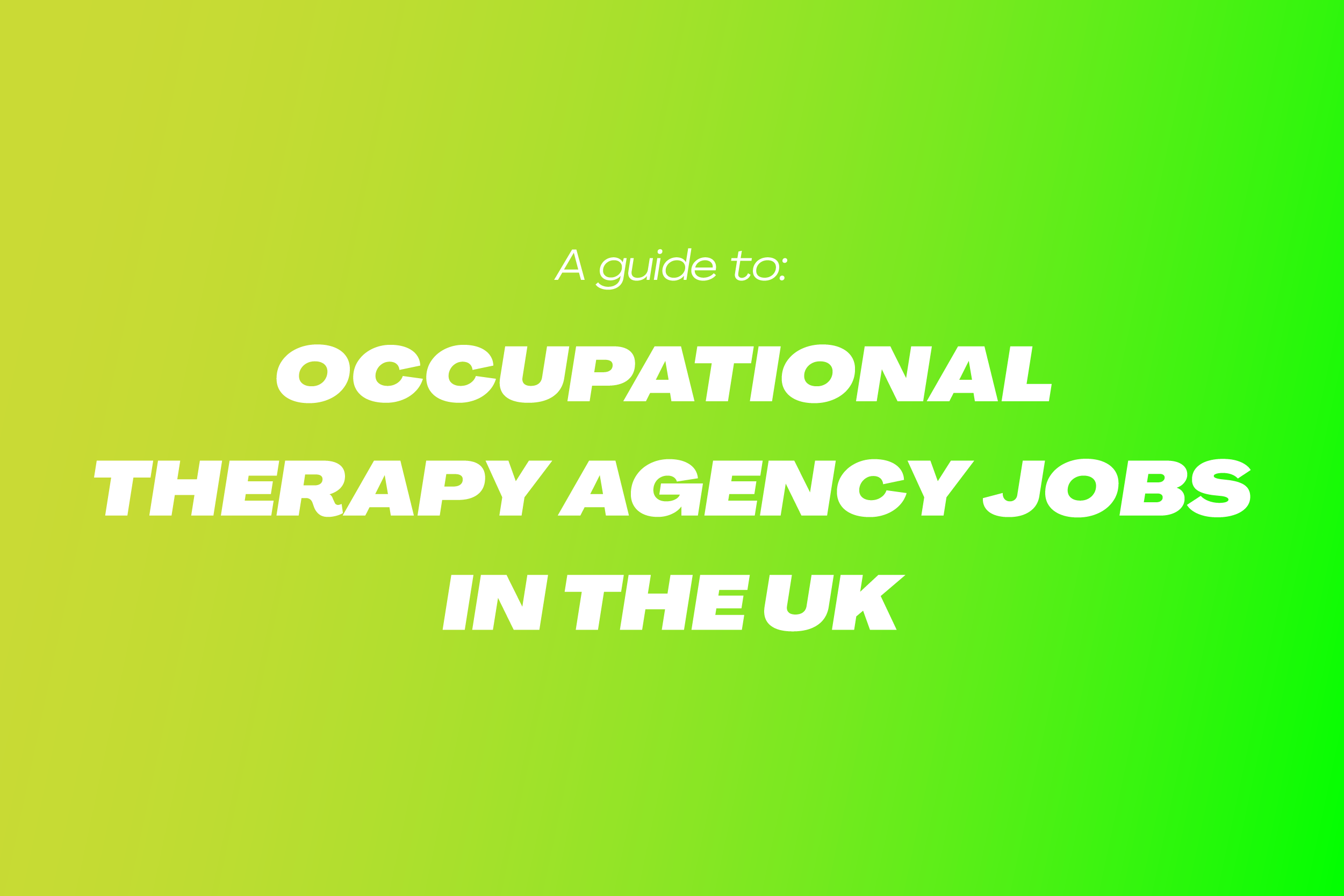Occupational Therapy (OT) in the UK provides hope and help for people overcoming physical, mental, or social challenges. As the demand for these skilled professionals grows, navigating the career landscape can be exciting and challenging.
In this guide, we will address key questions about the profession and provide insights from Reece Datson, one of our Lead Executives in Occupational Therapy. This information will benefit aspiring OTs in their careers.
Article Breakdown
What Are the Daily Responsibilities of Occupational Therapists?
What Steps Should You Take after Graduating to Get a Job as an Occupational Therapist?
What Is the Average Salary for an Occupational Therapist in the UK?
How to Find Rewarding Occupational Therapist Jobs in the UK?
Occupational Therapist Employment Opportunities: What Next?
What Are the Daily Responsibilities of Occupational Therapists?
Occupational therapists' day-to-day tasks are diverse, reflecting the varied needs of their clients. Occupational therapists work across different settings, including hospitals, clinics, schools, and clients' homes, to devise and implement therapeutic strategies. While the responsibilities vary widely, they typically involve assessing clients' needs, planning and carrying out interventions, and reviewing progress. This variability ensures that each day differs, offering a dynamic and fulfilling work environment.
What Steps Should You Take after Graduating to Get a Job as an Occupational Therapist?
After graduating with a degree in occupational therapy, there are some strategic steps Occupational therapists must take. Reece Datson recommends, "After graduating, I recommend finding therapy assistant work while your HCPC is pending. This helps you build experience and get your foot in the door with a service for when you are HCPC registered." Gaining experience as a therapy assistant bolsters your resume with work experience and positions you favourably for future roles as a registered occupational therapist."
What Is the Average Salary for an Occupational Therapist in the UK?
UK occupational therapists have a fulfilling job with good pay. Salaries vary significantly based on experience, location, and whether you work as a permanent staff member or a locum. In the UK in 2024, Occupational Therapists (OTs) earn different salaries.
Salaries are based on factors like experience, location, and type of job. For example, working in the NHS, private sector, or as a locum. The average salary varies according to various sources. The average salary varies according to multiple sources. Here are some of the reported average occupational therapist salaries in the UK:
- Payscale reports an average salary of £29,278, ranging between £24,000 and £38,000.
- Glassdoor suggests a national average salary of £37,267, with typical base pay ranging from £31,000 to £44,000
- Indeed lists an average salary of £38,249 per year for occupational therapists in the UK
Reece Datson says, "Salaries can vary by banding, but on average, locums can earn £10,000 - £20,000 more per year." This significant difference highlights the potential financial benefits of choosing locum work, providing flexibility and higher earning potential.
How to Find Rewarding Occupational Therapist Jobs in the UK?
Finding a job that meets your professional goals and personal needs can be daunting.
Reece advises, "A way to find rewarding jobs across the UK is to contact a recruitment specialist who knows the market well. We customise our service to meet your needs and help you find the perfect job that exceeds your expectations."
Using a recruitment specialist, especially one who knows about OT, can make your job search easier. They can help you find part-time or full-time locum positions.
Occupational Therapist Employment Opportunities: What Next?
Beginning your career journey or seeking new opportunities as an OT demands a clear understanding of your goals and preferences. Reece advises, "When exploring OT employment opportunities, it is important to know what type of work you're interested in and what expectations you have regarding location/pay."
Knowing your priorities helps recruiters find jobs that fit your career goals, whether temporary or permanent positions.
If you have any questions or would like to speak to Reece about the opportunities he has at the moment, you can contact him:
Email Reece Now or call Reece now on 07767103296 or 02037516060.









